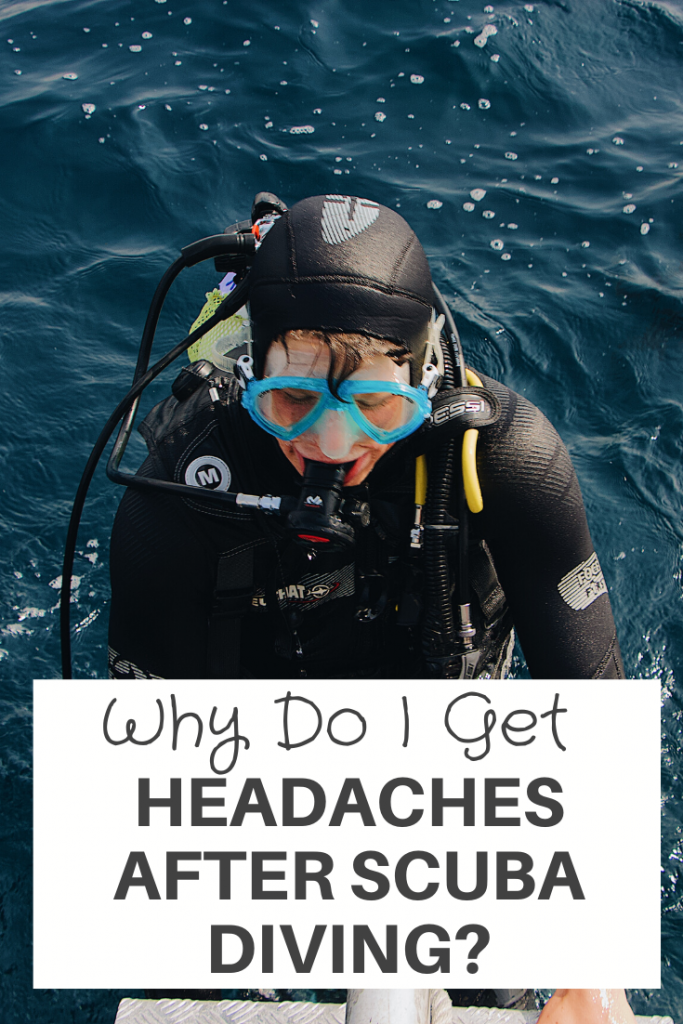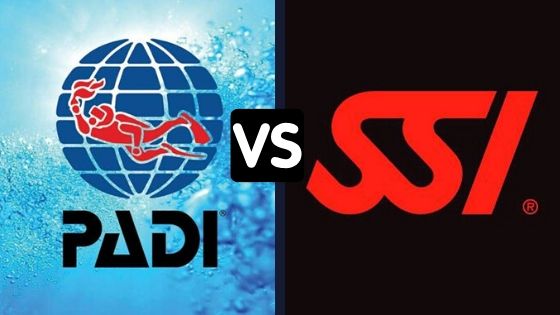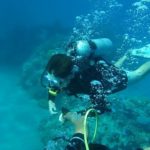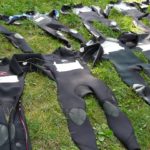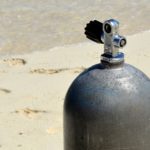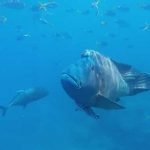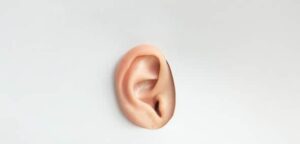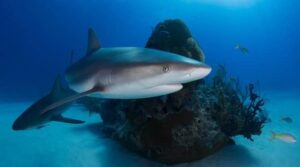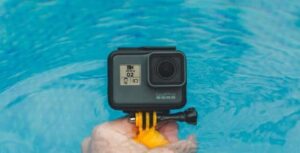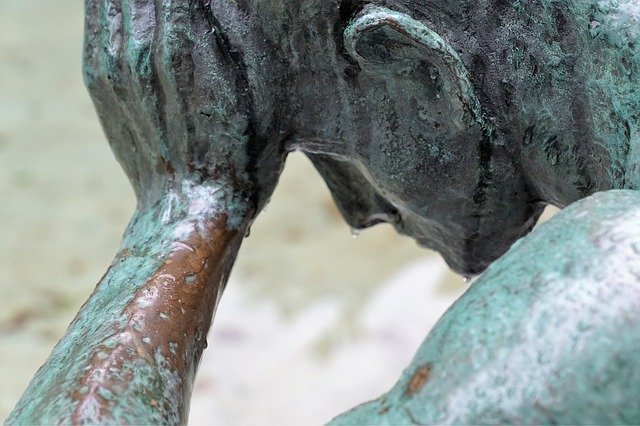
Why do some divers get headaches after scuba diving? These headaches that occur after scuba diving are not usually serious, in most cases as they can simply be caused by the stress and excitement of going scuba diving.
There are a lot of aspects to scuba diving that can exacerbate or even cause the most common types of headaches from tension headaches to exertion headaches. In rare cases, the pain can indicate something more serious, like decompression sickness or carbon monoxide poisoning.
Fortunately, safety precautions make those more serious conditions highly unlikely and they are easily identifiable by their accompanying symptoms.
In today’s post, we will go through why scuba divers get headaches after diving in more detail, so let’s get started!
Read more on common questions asked by beginner divers
Why Do Scuba Divers Get Headaches After Diving?
A majority of cases of getting headaches after scuba diving happens because of eating and drinking habits before they go diving.
Now let’s take a look at six types of post-diving headaches and the whys behind them!
Dehydration Headache
Dehydration is the most common headache trigger. Although there are complex and poorly understood mechanisms at play, the simplest explanation is that the loss of water in the brain tissue leads to slight fluctuations in the pressure in the skull, which triggers a headache.
Dehydration headaches feel like a normal, tension headache and can be very long-lasting and unpleasant. They can feel similar to a hangover and often appear to be radiating from the neck.

Sun and heat exposure while out scuba diving can certainly make you prone to dehydration but there are more direct elements at play as well, such as the phenomenon called immersion diuresis.
When your body is compressed by the weight of the water, pressure receptors are tricked into thinking your blood volume is higher than it is. As a result, the body decreases its production of an antidiuretic hormone called vasopressin and you start producing more urine than is necessary.
Dehydration quickly follows. Coldwater further exacerbates this issue, because it causes the blood vessels in your skin, arms, and legs to contract.
Breathing Headache Caused By Carbon Dioxide (CO2) Buildup
A buildup of carbon dioxide in the blood can cause a very severe, throbbing headache, often accompanied by severe nausea. Although these types of headaches can be extremely unpleasant and long-lasting, they are not serious.
Carbon dioxide buildup usually occurs because of insufficient breathing during diving, also called hypo-ventilation. The pressure of the water on the human body creates a tendency to breathe less and a seemingly normal rate of breathing is not enough to expel all the waste CO2, leading to a buildup.
Because carbon dioxide is a vasodilator, it dilates the small blood vessels in the brain, leading to headaches very similar to the one that occurs during a migraine or during caffeine abstinence.

Headache Caused By Sinus Pressure
A sinus headache can be easily recognized by the location of the pain, usually affecting the jaw, forehead, and cheeks. Those types of headaches start because of poor equalization of the pressures of the nasal cavity and sinuses.
This usually happens because the narrow passages connecting the sinuses to the nasal cavity are blocked, due to a cold or inflammation caused by allergies or chronic sinusitis.
The problem can occur both during descent and during ascent. It’s commonly known in the scuba-diving community as sinus squeeze.
Sinus squeeze can take a while to disappear, especially if the pressure difference has led to a minor trauma of the sinus cavities or passages.
Decompression Sickness (DCS) Headache
If you’re a scuba diver you already know about decompression sickness (DCS). Simply this is where there is a rapid buildup of nitrogen bubbles caused by a quick ascent. While a headache can be a warning sign of DCS, it alone is certainly not indicative of it.
However, if you suspect you’ve ascended too quickly and start to get a headache shortly after, it’s important to be aware of the other symptoms of DCS such as.
- Joint pain.
- Numbness.
- Ringing in the ears.
- Muscle weakness.
If you get DCS, this will require hyperbaric oxygen treatment in a hospital.
Headache Caused By Carbon Monoxide Poisoning
This is a highly unlikely scenario, with a severe headache and in serious cases requires immediate hyperbaric oxygen treatment, the same treatment used for DCS.
Carbon monoxide poisoning occurs either because of a faulty air compressor or because the air compressor draws in air, contaminated by the exhaust gases of a nearby internal combustion engine.
Generally, carbon monoxide can only come from the burning of organic matter generally either burning fuel from an engine or overheated oil in the faulty pistons of the air compressor.
It’s important to be aware of the other symptoms of carbon monoxide poisoning which are.
- Shortness of breath.
- Confusion.
- Abdominal pain.
- Weakness.
- Dizziness.
- Headache.
- Flu-like symptoms.
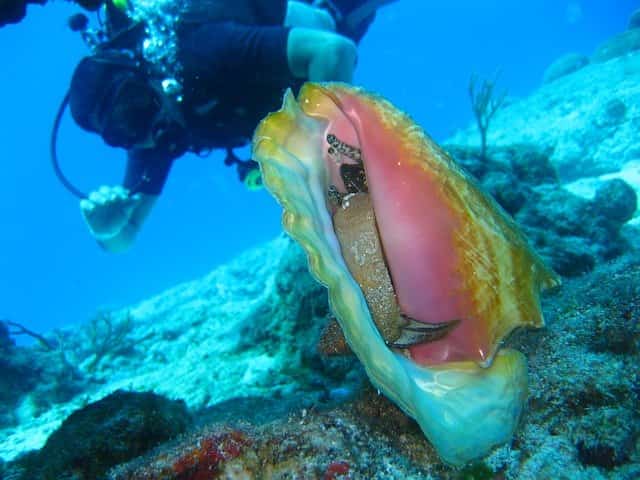
Headache As A Symptom Of Post-Dive Fatigue
The term post-dive fatigue is pretty self-explanatory but it refers to the fatigue and tiredness some divers tend to experience after scuba diving. It’s caused by a long list of factors such as.
- Stress.
- The excitement of the experience.
- Physical over-exertion.
- Dehydration.
- Slight CO2 buildup.
Post-dive fatigue can often be accompanied by a headache usually a common tension headache. However, it can also trigger a migraine if you’re prone to them.
Post-dive fatigue and the headaches associated with it can last a while but a good night’s sleep usually takes care of it.
Wrapping Up
Finally, getting headaches after scuba diving is normal especially for beginners with generally the cause been dehydration or excitement. If the headaches continue or get worse you should contact your doctor.
And that’s it for now! I’d love to know if this guide on why do I get headaches after scuba diving has helped you. Let me know if you have any questions and let me know if there is more to add.
Did you enjoy this post? Then don’t forget to pin it!
